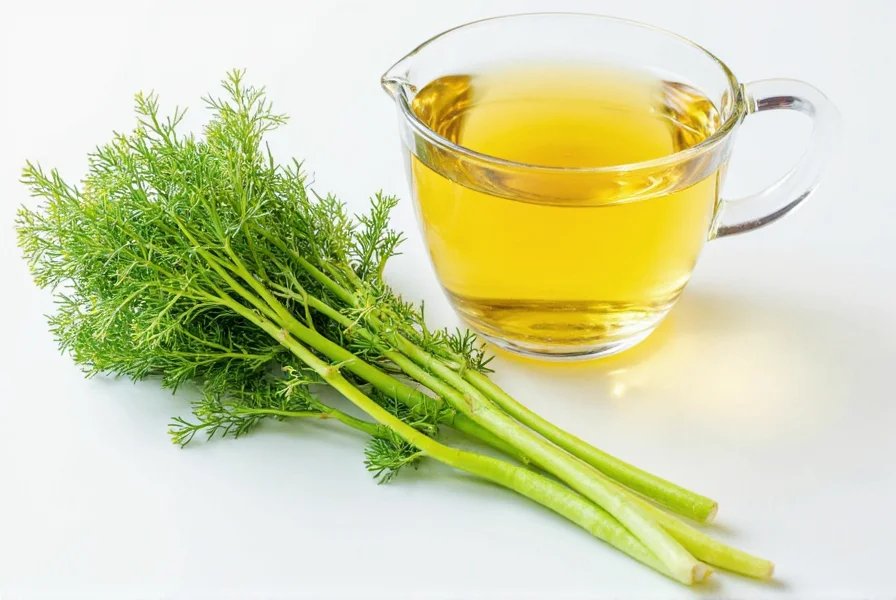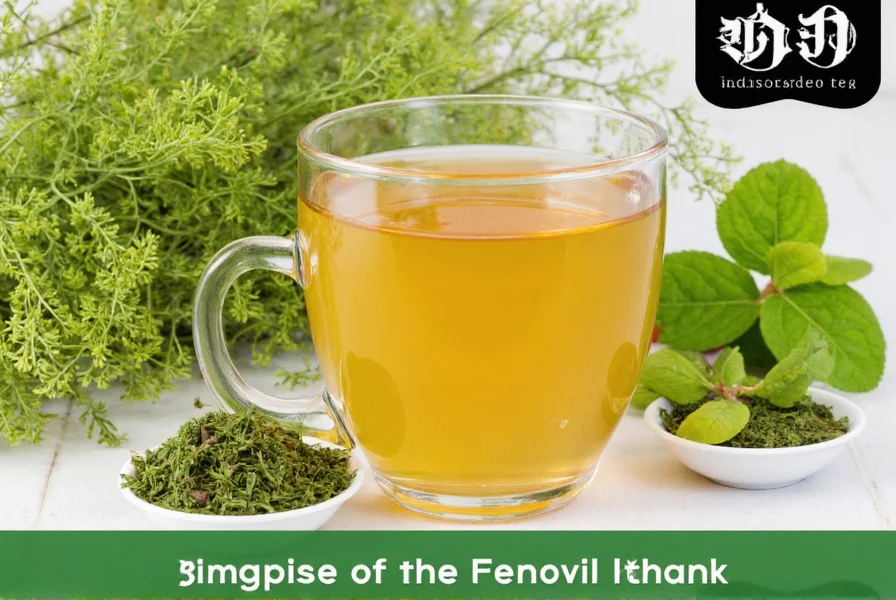Fennel tea, brewed from the seeds of Foeniculum vulgare, has been valued across cultures for centuries. This aromatic herbal infusion offers more than just a pleasant licorice-like flavor—it delivers multiple evidence-backed health benefits while remaining caffeine-free and generally safe for most adults. Understanding the specific applications of fennel tea helps maximize its potential while avoiding misuse.
Digestive Health Applications
Among the most well-documented fennel tea benefits is its effectiveness for digestive issues. Clinical studies show fennel seed compounds like anethole relax gastrointestinal tract muscles, reducing spasms that cause bloating and cramps. A 2021 review in Phytotherapy Research confirmed fennel tea's efficacy for irritable bowel syndrome symptoms, with participants reporting significant reductions in abdominal pain and bloating within two weeks of regular consumption.
For immediate relief from post-meal discomfort, many nutritionists recommend drinking one cup of fennel tea 20 minutes after eating. The tea stimulates bile production, aiding fat digestion while reducing gas formation. Unlike pharmaceutical antacids, fennel tea works with your body's natural processes without causing dependency.

Respiratory Support Benefits
Fennel tea's expectorant properties make it valuable during cold and flu season. The volatile oils in fennel seeds help loosen mucus in airways while reducing inflammation in respiratory tissues. When combined with honey and lemon, fennel tea creates a soothing remedy for persistent coughs.
Traditional Ayurvedic medicine has long used fennel tea for sinus congestion. Modern research supports this application—fennel's anti-inflammatory compounds reduce swelling in nasal passages. For best results, inhale the steam while drinking the tea to maximize respiratory benefits.
Hormonal Balance and Women's Health
Women seeking natural approaches to menstrual discomfort often turn to fennel tea uses. Multiple clinical trials demonstrate fennel tea's effectiveness in reducing menstrual pain intensity and duration. A double-blind study published in Complementary Therapies in Medicine found women who consumed fennel tea experienced 30% less pain compared to placebo groups.
During menopause, fennel tea may help manage hot flashes and mood swings due to its phytoestrogen content. However, women with estrogen-sensitive conditions should consult healthcare providers before regular consumption. Nursing mothers sometimes use fennel tea as a galactagogue, though evidence here remains preliminary.
Antioxidant and Metabolic Benefits
Beyond specific therapeutic uses, fennel tea contributes to overall wellness through its rich antioxidant profile. The tea contains flavonoids, phenolic compounds, and vitamin C that combat oxidative stress. Regular consumption may support healthy blood pressure levels and improve lipid profiles according to emerging research.
| Primary Compound | Concentration in Fennel Tea | Associated Benefit |
|---|---|---|
| Anethole | 60-70% of essential oil | Anti-spasmodic, digestive relief |
| Fenchone | 10-20% of essential oil | Respiratory support |
| Strigol | Trace amounts | Antioxidant properties |
Safety Considerations and Proper Usage
While fennel tea benefits are substantial, proper usage matters. Most adults can safely consume 2-3 cups daily, but higher amounts may cause side effects like photosensitivity or allergic reactions in sensitive individuals. People with estrogen-sensitive conditions, pregnant women beyond first trimester, and those taking certain medications should consult healthcare providers before regular consumption.
When selecting fennel tea, choose organic varieties to avoid pesticide residues. Freshly crushed seeds yield stronger flavor and potency than pre-packaged tea bags. For optimal extraction of beneficial compounds, steep crushed seeds in boiling water for 5-7 minutes, covered to preserve volatile oils.
Practical Preparation Methods
Maximizing fennel tea uses requires proper preparation. Here's a simple method for therapeutic-grade tea:
- Crush 1-2 teaspoons of fennel seeds to release essential oils
- Pour 8 ounces of freshly boiled water over the seeds
- Cover and steep for 5-7 minutes
- Strain and enjoy plain or with lemon
For digestive issues, drink 20 minutes after meals. For respiratory benefits, inhale the steam while drinking. Adding a slice of fresh ginger enhances anti-nausea effects, while honey improves palatability without diminishing benefits.
Conclusion
Fennel tea offers versatile applications supported by both traditional wisdom and modern research. From digestive relief to respiratory support and hormonal balance, this accessible herbal remedy provides multiple pathways to improved wellness. When used appropriately and consistently, fennel tea can become a valuable component of a holistic health routine. As with any natural remedy, understanding both the benefits and limitations ensures safe, effective use.
Frequently Asked Questions
Can fennel tea help with weight loss?
Fennel tea may support weight management through several mechanisms: it acts as a mild diuretic to reduce water retention, contains compounds that may improve metabolism, and helps control appetite by reducing bloating and improving digestion. However, it's not a standalone weight loss solution and works best as part of a balanced diet and exercise routine.
How often can I safely drink fennel tea?
Most adults can safely consume 2-3 cups of fennel tea daily. For therapeutic purposes like managing menstrual cramps, some protocols suggest up to 4 cups during symptom periods. Long-term daily consumption above 3 cups isn't recommended without healthcare provider consultation, especially for individuals with hormone-sensitive conditions.
Is fennel tea safe during pregnancy?
Fennel tea is generally considered safe in moderate amounts during early pregnancy for digestive issues, but should be avoided in the third trimester due to potential uterine stimulation effects. Pregnant women should consult their healthcare provider before regular consumption, especially if they have a history of preterm labor or hormonal complications.
Can fennel tea interact with medications?
Yes, fennel tea may interact with certain medications including estrogen therapies, anti-seizure drugs, and some cancer treatments due to its phytoestrogen content and effects on liver enzymes. If you take prescription medications, particularly for hormone-related conditions or neurological issues, consult your healthcare provider before regular fennel tea consumption.
How does fennel tea compare to other digestive teas?
Fennel tea specifically targets intestinal spasms and gas relief more effectively than many alternatives. While ginger tea excels for nausea and peppermint for upper digestive issues, fennel works particularly well for lower abdominal bloating and cramping. Combining fennel with peppermint creates a comprehensive digestive tea blend addressing multiple gastrointestinal concerns.











 浙公网安备
33010002000092号
浙公网安备
33010002000092号 浙B2-20120091-4
浙B2-20120091-4